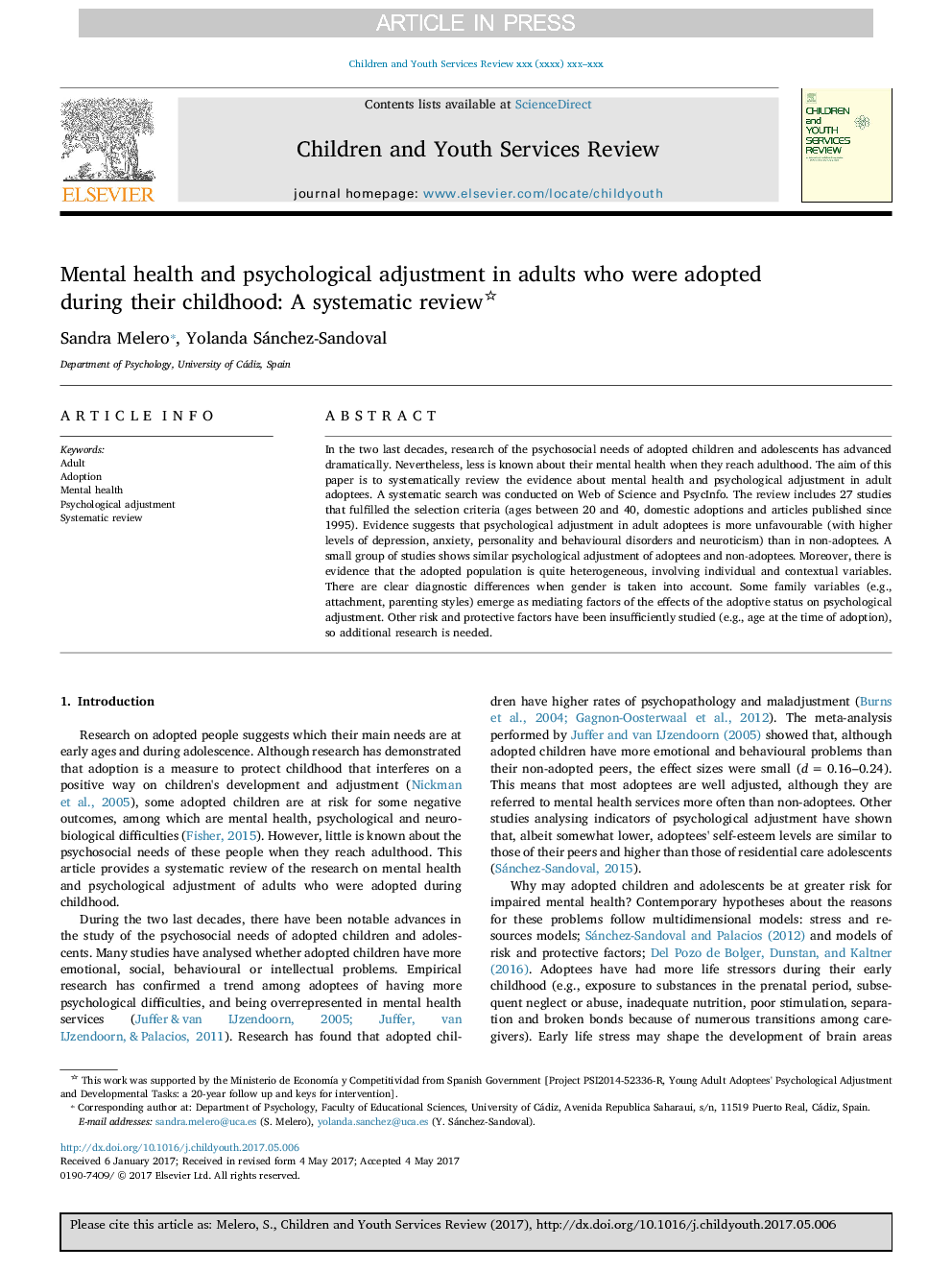ترجمه فارسی عنوان مقاله
سلامت روان و تنظیم روان شناختی در بزرگسالانی که در دوران کودکی خود پذیرفته شدند: یک بررسی سیستماتیک
عنوان انگلیسی
Mental health and psychological adjustment in adults who were adopted during their childhood: A systematic review
| کد مقاله | سال انتشار | تعداد صفحات مقاله انگلیسی |
|---|---|---|
| 126638 | 2017 | 9 صفحه PDF |
منبع

Publisher : Elsevier - Science Direct (الزویر - ساینس دایرکت)
Journal : Children and Youth Services Review, Volume 77, June 2017, Pages 188-196
ترجمه کلمات کلیدی
بزرگسالان، تصویب، سلامت روان، تنظیم روانشناختی، بررسی سیستماتیک،
کلمات کلیدی انگلیسی
Adult; Adoption; Mental health; Psychological adjustment; Systematic review;

